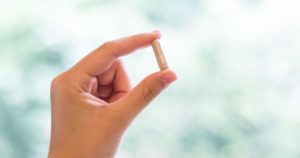Reports of Dangerously Mislabeled Supplements
February 19, 2015 A recent investigation into the quality of supplements sold at four popular retailers has revealed some troubling news. Herbal supplements sold under store brand names may not be what they claim to be, and may contain hidden ingredients that could be harmful.
A recent investigation into the quality of supplements sold at four popular retailers has revealed some troubling news. Herbal supplements sold under store brand names may not be what they claim to be, and may contain hidden ingredients that could be harmful.
The investigation was launched by the office of the New York State Attorney General, who performed tests on several store brand supplements sold at Walmart, Walgreens, Target and GNC. Results revealed that nearly 80% of the products tested did not contain any of the herbs listed on the label. In many cases, the supplements were shown to contain little more than cheap fillers that were not included on the ingredients list.
The investigators reached their conclusions using a technology called DNA bar coding, a process that allows scientists to single out which plants a supplement contains by identifying the plant’s unique DNA. Following the results, the attorney general issued cease and desist letters to the four retailers requiring them to pull the products from their shelves.
Some of the supplements tested from GNC’s Herbal Plus brand included: Gingko biloba, St. John’s wort, ginseng, and echinacea. Not one sample of these products contained the herb listed on the label. They did, however, contain fillers like rice, garlic, asparagus, common houseplants and powdered legumes. Legumes are part of the same botanical class as peanuts and soybeans – commonly known to trigger severe allergic reactions in some people.
Three of the six herbs tested from Target’s Up & Up brand, gingko biloba, St. John’s wort, and valerian root, contained no trace of the herbs. Instead, they contained rice, beans, asparagus, garlic, or peas.
Six samples were tested from Walgreen’s Finest Nutrition brand. Only one tested positive for the herb on the label – saw palmetto. The others – gingko biloba, St. John’s wort, ginseng, garlic, and echinacea – contained only fillers and other plants. Curiously, three of the samples tested positive for garlic; however the garlic supplement was not one of them.
Of the four retailers investigated, Walmart proved to be the poorest performer. Only four percent of the samples tested from their Spring Valley brand contained the herb listed on the label. Walmart’s gingko biloba product contained only powdered radish, houseplants, and wheat, despite being labeled as wheat and gluten-free.
The fraudulent and illegal practice of misrepresenting a pill’s ingredients can potentially endanger lives. Unlabeled ingredients, such as wheat and other contaminants, can pose a serious health threat if taken by someone with allergies to the ingredients or by someone taking medication for an unrelated illness. It is the responsibility of both the manufacturer and the retailer of these products to ensure that they are properly labeled and safe for consumers.
Philadelphia Products Liability Lawyers at Galfand Berger Advocate for Consumers’ Right to Safe Health Products
If you suspect that you may have been injured by a defective or mislabeled product, call the experienced Philadelphia products liability lawyers at Galfand Berger. You may be able to file a products liability action and recover damages to compensate you for any harm you have suffered. For your free consultation with one of our knowledgeable and highly skilled attorneys, call at 800-222-8792 or submit an online contact form.
 Google Screened
Google Screened
